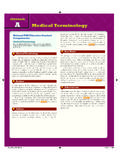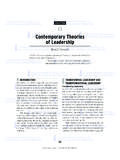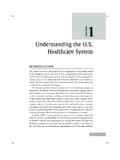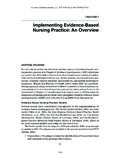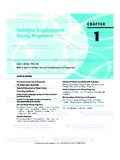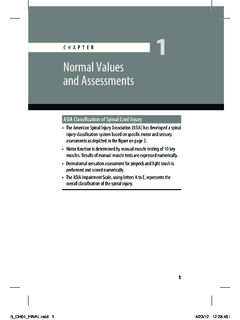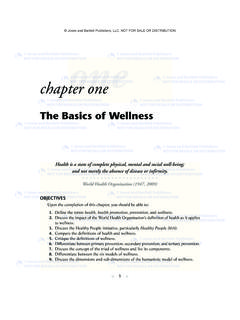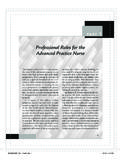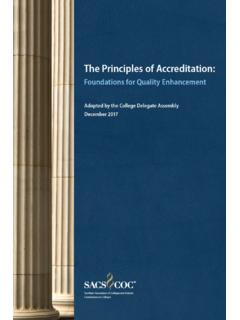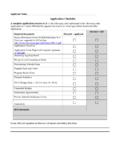Transcription of Foundations of Service-Learning - Jones & Bartlett Learning
1 1 Chapter 1 Foundations ofService- Learning Kathleen Flecky, OTD, OTR/LThis chapter offers foundational knowledge of service - Learning byproviding an overview of the discipline s key concepts and defini-tions. It also features a discussion of relevant theoretical and peda-gogical approaches to service- Learning and a brief history ofservice- Learning in the United States. Service- Learning s relevance inhigher education, in general, and education in the health sciencesand occupational therapy, in particular, is also explored. Finally, thechapter includes critiques of service - Learning as well as a brief sum-mary of trends for service- Learning in higher of service -LEARNINGWhat is service- Learning ? Although there are a variety of definitions,the essence of service - Learning rests on a philosophy of service andlearning that occurs in experiences, ref lection, and civic engagementwithin a collaborative relationship involving community unique aspect of service - Learning is that it incorporates 10/27/09 3:15 PM Page 1 Jones and Bartlett Publishers, LLC.
2 NOT FOR SALE OR DISTRIBUTIONC hapter 1: Foundations of service -Learningopportunities for students, faculty, and community partners to re-f lect on their interactions and activities in light of both educationaland community objectives. The hyphen between serviceand learningis purposeful; it denotes a balance between the service and learningoutcomes resulting from the partnership stated by Jacoby (1996), Service- Learning is a form of experi-ential education in which students engage in activities that addresshuman and community needs together with structured opportuni-ties intentionally designed to promote student Learning and devel-opment (p. 5). This definition differentiates service- Learning fromother forms of active Learning , such as collaborative, cooperative,and problem-based education. Service- Learning engages faculty andstudents with community partners in structured opportunities tomeet academic Learning objectives while addressing acknowledgedcommunity needs.
3 Service- Learning is different from volunteerexperiences because of the explicit link of course objectives withstructured community interactions to meet community-driven , civic engagement and ref lection about service are es-sential elements of service - Learning , which often distinguishes it frominternships (Howard, 2001). According to Eyler & Giles (1999), quality service- Learning experi-ences include the following components: curricula and projects thatare sustainable and developed in partnership with the community;activities that are meaningful to student Learning and communityneeds; a clear and relevant connection of community activities tocourse Learning objectives; and purposeful challenges for partici-pants to grapple with diversity and social issues. Service- Learning ischaracterized as the interplay of service and Learning , not only withinindividual course settings, but also within the broader academic in-stitutional goals of community engagement.
4 Brown (2001) describesservice- Learning as .. expanding educational institutions (and theindividual representatives of those institutions) participation in com-munity, especially in terms of fostering coalitions and creating re-sponsive resources for and with that community .. (p. 5). The conceptual foundation of occupation and occupational ther-apy is an ongoing discussion and conversation featuring 10/27/09 3:15 PM Page 2 Jones and Bartlett Publishers, LLC. NOT FOR SALE OR DISTRIBUTION interdisciplinary theories and applied reference models (Kielhofner,2004; Kramer, Hinojosa, & Royeen, 2003). Similar to the concept ofoccupation, service- Learning is complex and based on diverse theo-retical constructs, which will be described in the next section. Asservice- Learning continues to expand into more courses, curricularmodels, and institutional infrastructures, theoretical concepts anddefinitions of service - Learning will likely be further delineated and re-fined to meet the civic and social missions of institutions (Maurrasse,2004; Shumer & Shumer, 2005).
5 THEORETICAL AND PEDAGOGICAL APPROACHESAs noted by Howard (1998), .. academic service Learning is a peda-gogical model that intentionally integrates academic service learningand relevant community service (p. 22). Service- Learning is not simplythe addition of a service assignment to a course, rather it challenges theteacher, learner, and community partners to connect course materialsexplicitly to service in community with others, thereby necessitatingcommunal and reciprocal theoretical and pedagogical writings and research on service- Learning frequently cite thework of philosopher John Dewey as the philosophical and pedagog-ical inspiration for experiential, democratic, and civic education andfor service- Learning (Giles & Eyler, 1994; Stanton, Giles, & Cruz, 1999).Dewey, a naturalistic philosopher, believed that we ref lect and useprior knowledge from experiences to further our growth. The inf lu-ences of Dewey s works on philosophy and epistemology lead to newways of thinking about education as actively connecting knowledgeto experience through engagement in and ref lection on the worldoutside the classroom (Noddings, 1998).
6 Dewey also linked the pur-pose of education to promoting democratic instructional practicesand a more fully democratic society (Dewey, 1916). Dewey wrote:A society which makes provisions for participation in its goodof all members on equal terms and which secures f lexible read-justment of its institutions through interaction of the differ-ent forms of associated life is in so far democratic. Such asociety must have a type of education which gives individualsTheoretical and Pedagogical 10/27/09 3:15 PM Page 3 Jones and Bartlett Publishers, LLC. NOT FOR SALE OR DISTRIBUTIONa personal interest in social relationships and control, and thehabits of mind which secure social changes without intro-ducing disorder. (p. 99)In addition to Dewey, the theoretical insights of David Kolb andDonald Schon on the role of ref lective thinking in experiential edu-cation have inf luenced how pedagogy incorporates ref lection on serv-ice as integral to service- Learning (Cone & Harris, 1996; Eyler, Giles,& Schmiede, 1996).
7 Kolb s cycle process (Kolb, 1984) ref lection onconcrete experiences, thoughtful observation, abstract conceptual-ization, and active experimentation lead to inclusion of ref lectiveactivities prior to, during, and after service as part of service -learningassignments. Schon s practice of ref lection in action and his recipro-cal ref lection teaching and coaching model (Schon, 1987) have beenused to foster reciprocal ref lective activities among students, faculty,and community partners (Honnet & Poulsen, 1989).Service- Learning also draws on critical theory and feminist pedagogy(Brown, 2001; Deans, 1999). As noted by Friere (1973) and Shor (1987),critical theory emphasizes that education is political and should in-volve a dialectical approach of problem-posing and a critique of socialsystems and the civic responsibilities of education. Feminist pedagogyalso espouses the need for critical ref lection and dialogue related toeducational aspects of privilege and power (Weiler, 1991).
8 These mod-els point to the importance of situating service- Learning in context withsocial issues and challenges. The development of participatory-actionand community-based research in service- Learning are examples of howthese pedagogies support community advocacy and give greater voiceto community partners with their strengths and needs (Strand, Marullo,Cutforth, Stoecker, & Donohue, 2003; Reardon, 1998).Finally, in addition to the use of social Learning and cognitive learn-ing models, recent development in service- Learning theoretical frame-works include the use of a pedagogy of engagement (Lowery et al.,2006), the transformational model (Kiely, 2005), and service-learningas postmodern pedagogy (Butin, 2005). Each of these models haspromise in helping to elucidate service- Learning as a concept of teach-ing and Learning with important philosophical considerations basedon current research.
9 As the theory of service - Learning is more fullyChapter 1: Foundations of 10/27/09 3:15 PM Page 4 Jones and Bartlett Publishers, LLC. NOT FOR SALE OR DISTRIBUTION developed, researchers can apply theory to gain a clearer under-standing of the impact and value of service - Learning as a philosophyand summary, the diversity of theoretical and pedagogical ap-proaches described in this section can be viewed as both a concernand as strength. Numerous sources point to an urgent need for alogical and relevant theoretical basis for service- Learning and notethe concerns of multiple, diverse theories to support needed evidence-based research studies (Langana & Rubin, 2001; Billig & Welch, 2004).However, some authors have posited that service- Learning is a com-plex philosophical and pedagogical concept, one best served by mul-tiple models of origin and through research, pedagogical discussion,and the critique of a variety of theoretical models (Butin, 2005).
10 Clearly, it is important that educators, students, community part-ners, and institutions understand the history of service - Learning be-fore incorporating service- Learning into courses or curricula. THE HISTORY of service -LEARNINGIN HIGHER EDUCATIONMany universities and colleges were founded to serve their communi-ties as well as educate their citizens. Service- Learning s philosophicalroots lie in social-reform movements, as exemplified by Jane Addamsand Hull House in the late 1800s, and the educational reform move-ments of Dewey and others at the University of Chicago in the early1900s (Titlebaum, Williamson, Daprano, Baer, & Brahler, 2004). Schoolsof higher Learning , especially the land-grant colleges in the 1900s, de-veloped extension programs that initially focused on the needs of thelocal farming communities and the Work Projects Administration dur-ing the Great Depression (Kenny & Gallagher, 2002).

